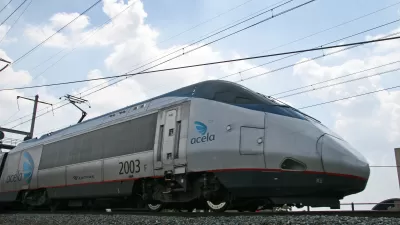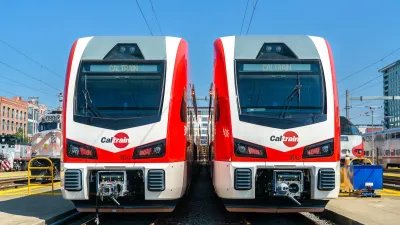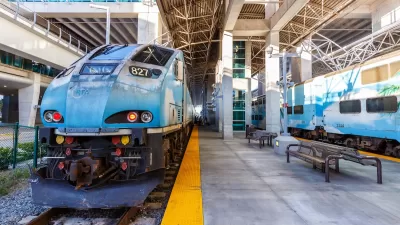After many European train operators eliminated their unprofitable sleeper car services, a renewed interest in overnight rail travel has led to a boom in private sleeper train networks.

A French company wants to connect Paris and 12 other European cities with a network of sleeper trains, "hoping post-Covid interest in cleaner, greener travel will generate interest in its proposed 'hotels on rails'," writes Kim Willsher in The Guardian. The company, Midnight Trains, "plans to serve at least a dozen destinations between 500 and 900 miles from Paris, including cities in Spain, Portugal, Italy, Belgium, Germany, Denmark and Scotland" and begin service in 2024.
"Midnight Trains is the latest arrival in what is becoming a crowded market. Across Europe, state-run railways are facing new competition from private operators looking to introduce night trains." In recent years, Europe's sleeper cars "were being consigned to the economic sidings, driven out of business by low-cost flights and long-distance buses. Since then, however, public concerns over the climate emergency have led to a surge of interest in reviving night routes across the continent." The European Commission's Sustainable and Smart Mobility Strategy, a plan that lays out Europe's goals and strategies for fighting climate change and building resiliency, "calls for a major shift in passengers to rail, including night trains."
More trains, writes David Burroughs in the International Railway Journal, could "play an important role in reducing transport emissions." As he writes, "[i]f operators are able to fully develop attractive services to meet the growing demands from passengers, while overcoming the major challenges they face, it could mark the start of a major new era in the post-pandemic world, and offer a major boon for the rail sector."
FULL STORY: New network of European sleeper trains planned

Study: Maui’s Plan to Convert Vacation Rentals to Long-Term Housing Could Cause Nearly $1 Billion Economic Loss
The plan would reduce visitor accommodation by 25,% resulting in 1,900 jobs lost.

North Texas Transit Leaders Tout Benefits of TOD for Growing Region
At a summit focused on transit-oriented development, policymakers discussed how North Texas’ expanded light rail system can serve as a tool for economic growth.

Why Should We Subsidize Public Transportation?
Many public transit agencies face financial stress due to rising costs, declining fare revenue, and declining subsidies. Transit advocates must provide a strong business case for increasing public transit funding.

How to Make US Trains Faster
Changes to boarding platforms and a switch to electric trains could improve U.S. passenger rail service without the added cost of high-speed rail.

Columbia’s Revitalized ‘Loop’ Is a Hub for Local Entrepreneurs
A focus on small businesses is helping a commercial corridor in Columbia, Missouri thrive.

Invasive Insect Threatens Minnesota’s Ash Forests
The Emerald Ash Borer is a rapidly spreading invasive pest threatening Minnesota’s ash trees, and homeowners are encouraged to plant diverse replacement species, avoid moving ash firewood, and monitor for signs of infestation.
Urban Design for Planners 1: Software Tools
This six-course series explores essential urban design concepts using open source software and equips planners with the tools they need to participate fully in the urban design process.
Planning for Universal Design
Learn the tools for implementing Universal Design in planning regulations.
Ascent Environmental
Borough of Carlisle
Institute for Housing and Urban Development Studies (IHS)
City of Grandview
Harvard GSD Executive Education
Toledo-Lucas County Plan Commissions
Salt Lake City
NYU Wagner Graduate School of Public Service





























